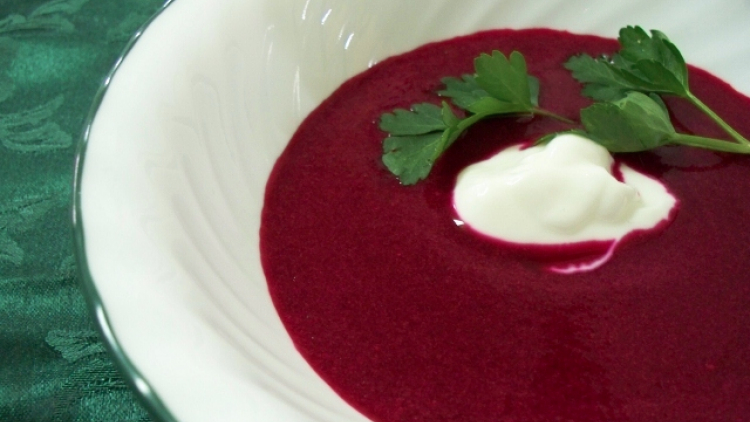Use Beets as a Detoxifying, Brain Boosting Side Dish
By Danna Norek | May 08, 2014

Beets are one of those foods that most people tend to either love or hate. The soft, buttery texture of a roasted or steamed beet is what gets most people hooked, and the slightly sweet, distinct flavor is what people usually gravitate toward (or away from, depending on taste).
If everyone really knew what kind of nutrition and health benefits can be garnered from adding beets to their diet, most people would try to include them whether they like them or not. These medium sized roots (and their leaves) really offer a lot in terms of health improvement and quality of life, and they are reasonably priced enough that everyone can afford to add them to their grocery list.
The bright reddish purple pigment – a uniquely bioavailable antioxidant, anti-inflammatory
Perhaps the most characteristic property of the beet is its bright red-purple pigment, betalain. The rough skin of the beet holds this pigment in, and should never be scraped or removed if possible before cooking. This pigment is the key to the unique health benefits of the beet, and can be destroyed by overcooking or removal of the skin.
Betalain contains an overall nutritional profile that isn’t found in many other vegetables, except in small quantity, and mostly in the typically uneaten portions of other grown foods. The unique caretenoids found in betalain offer support for the nervous system and function of important organs such as the eyes.
These pigments also offer unique cancer fighting ability for their high levels of both anti-inflammatory and antioxidant molecules. Studies have shown they inhibit the growth of cancerous tumors by inhibiting “pro-inflammatory” enzymes. In addition, beetroot fiber has been shown to increase white blood cell and antioxidant enzyme circulation, both of which increase our body’s natural cancer-fighting mechanisms.
Read more: http://blogs.naturalnews.com/use-beets-detoxifying-brain-boosting-colon-cleansing-side-dish/















